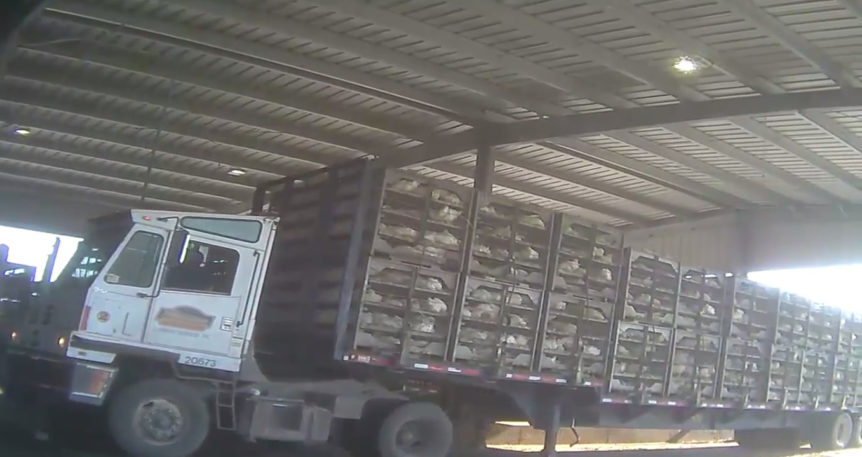- Like
- Digg
- Tumblr
- VKontakte
- Buffer
- Love This
- Odnoklassniki
- Meneame
- Blogger
- Amazon
- Yahoo Mail
- Gmail
- AOL
- Newsvine
- HackerNews
- Evernote
- MySpace
- Mail.ru
- Viadeo
- Line
- Comments
- SMS
- Viber
- Telegram
- Subscribe
- Facebook Messenger
- Kakao
- LiveJournal
- Yammer
- Edgar
- Fintel
- Mix
- Instapaper
- Copy Link
On Wednesday, U.S. Immigration and Customs Enforcement (ICE) carried out the largest raid in a decade at Salem, Ohio meatpacking plant Fresh Mark.
According to NPR, this raid was part of a yearlong investigation into Fresh Mark’s hiring practices. Most of the 146 employees arrested are still being detained in Ohio and Michigan, where they’re awaiting deportation proceedings.
This raid follows another one in rural Tennessee in April, where 97 workers were arrested after the family-run plant was investigated for allegedly pocketing $2.5 million in payroll taxes. Undocumented employees who were arrested had been subject to exposure to chemicals without protective eyewear, long hours, and no overtime pay as plant employees.
These dangerous conditions are not at all uncommon for workers on factory farms. And the situation is often much more dire for undocumented workers, who make up a large portion of the agricultural labor force, because they fear retaliation if they speak up about workplace practices. In fact, a 2004 AP investigative report found that Mexican workers in the U.S. were 80% more likely to die on the job than U.S.-born workers.
In the face of this danger, workers have very little legal recourse. While undocumented workers legally should be eligible to receive workers’ compensation, few pursue it due to intimidation from employers, lack of legal knowledge and resources, and language barriers.
Steve Francis, ICE’s Homeland Security Investigations agent for Ohio and Michigan, says that he wants businesses that knowingly hire undocumented workers to be held accountable for their actions. However, overworked and underpaid migrant workers are the ones paying the price for corporate profit and low-priced meat.
In a dangerous industry with an incredibly high turnover rate, meat industry employers that are struggling to find U.S. citizens wanting these jobs often look the other way regarding documentation. Then, when employees are hurt or discuss unionizing, employers can threaten to expose their legal status or terminate them without reason. In most cases, when it’s determined that workers were wrongly terminated, they are not entitled to backpay and left only with their legal fees.
These undocumented workers are not at all the minority and far outnumber U.S.-born employees in meat and poultry plants. These dangerous and dirty jobs are often ones that U.S. workers are simply not willing to do–and corporations are not willing to pay a fair wage for. Consequently, the meat industry is able to exploit a vulnerable population to staff their plants and often receive just a slap on the wrist, if that, for breaking immigration law.
Demand for cheap meat products supports these dangerous and unethical conditions and enables large corporations to continue exploiting workers–replacing those detained and deported with other marginalized workers.
This newest ICE raid comes shortly after the Trump administration policy that separated 2,342 children from their families at the southern U.S. border in little more than a month, and has now left children detained. While the specifics of each case varies the Ohio ICE raid is an unfortunate illustration of a place where the exploitative nature of factory farming intersects with the increasingly difficult political climate in our country for immigrants.

